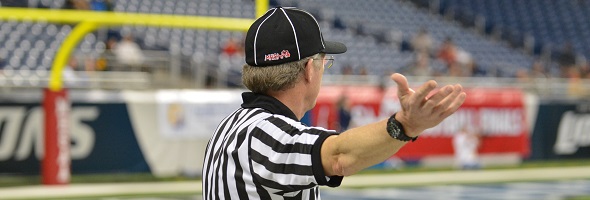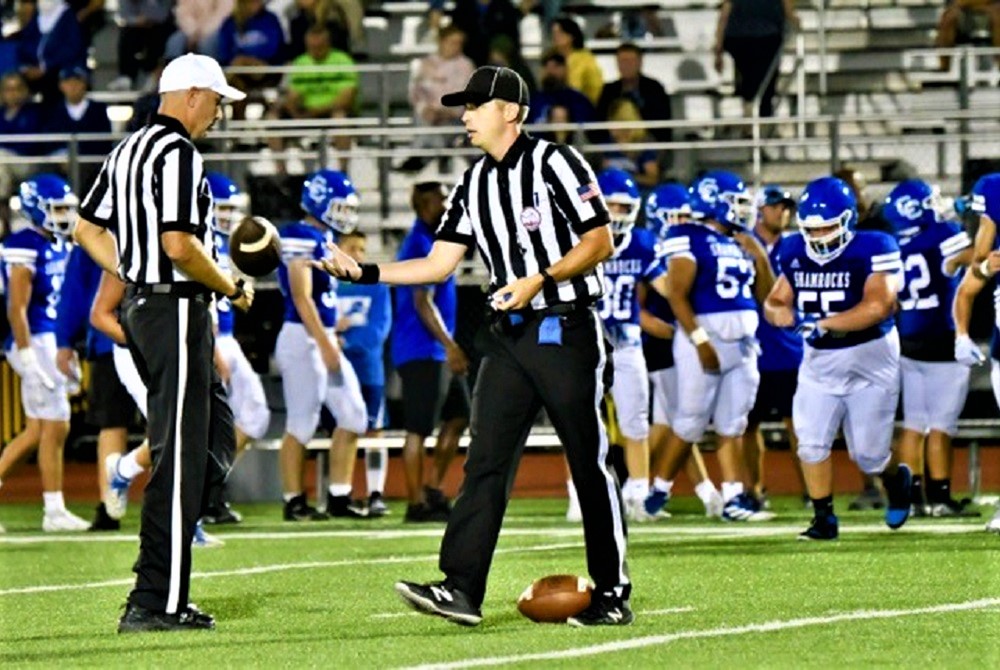
Be the Referee: Play Clock Experiment
September 1, 2016
This week, MHSAA assistant director Mark Uyl explains the 40-second game clock Michigan football schools are allowed to try this fall.
Be The Referee is a series of short messages designed to help educate people on the rules of different sports, to help them better understand the art of officiating, and to recruit officials.
Below is this week's segment – Play Clock Experiment - Listen
From time to time, the MHSAA receives permission from the national rules making body, the National Federation of State High School Associations, to experiment with a new rule.
This fall in high school football, Michigan schools can experiment with a 40-second play clock. In this experiment, the 40-second play clock begins at the end of the previous play, giving teams consistency from week to week when the offense can next snap the ball.
With using the traditional 25-second play clock, it really depends on the referee of the game in terms of the pace on how quickly the offenses can go.
Past editions
Aug. 25: Clipping in the Free Blocking Zone - Listen

Be the Referee: Intentional Grounding
By
Geoff Kimmerly
MHSAA.com senior editor
September 9, 2021
This week, MHSAA assistant director Brent Rice explains football intentional grounding at the high school level.
Be The Referee is a series of short messages designed to help educate people on the rules of different sports, to help them better understand the art of officiating, and to recruit officials.
Below is this week's segment – Intentional Grounding – Listen
A quarterback is under heavy pressure and immediately throws the ball away. International grounding, right? Maybe. And maybe not.
What goes into an official deciding if grounding has occurred?
First, there is no such thing as a “tackle box” in high school football as it pertains to grounding. A quarterback scrambling outside of the tackle box who throws the ball away could still be penalized for grounding – even if it reaches the line of scrimmage.
Any pass can be penalized for grounding if there is no receiver in the immediate area. Behind the line, inside the tackle box – none of that matters – it only matters if there’s a potential receiver nearby. If there is – no grounding. If there’s not – there will be a flag on the field.
Previous editions
Sept. 2: Pass Interference – Listen
Aug. 26: Protocols and Mechanics – Listen

